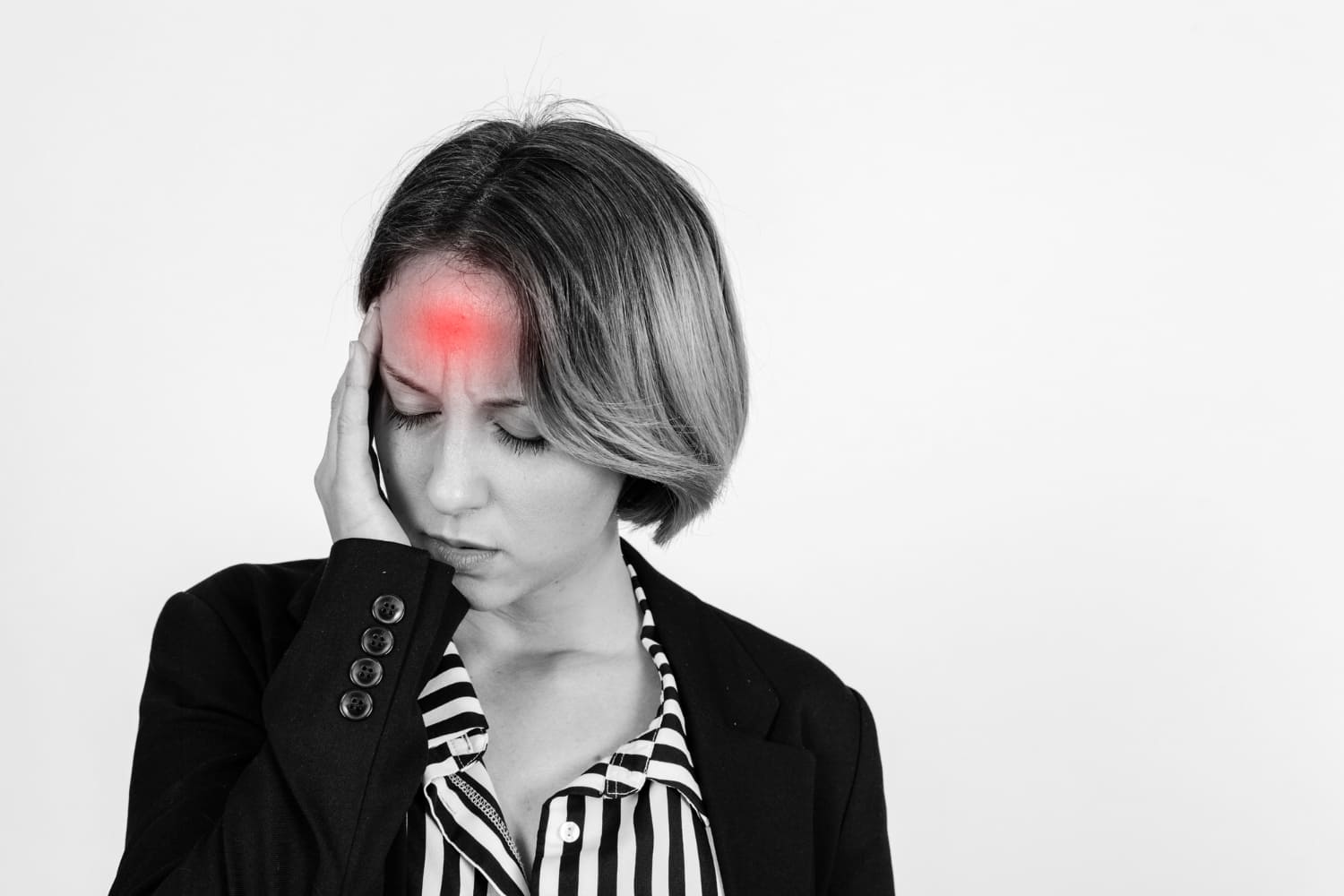Forehead Pain: Causes, Symptoms, and Homeopathic Treatments
Causes and Symptoms
Forehead pain can stem from various causes. One primary reason is sinusitis, particularly frontal sinusitis. Sinusitis involves the inflammation of the paranasal sinuses (air-filled spaces in the skull), while frontal sinusitis specifically affects the sinuses located behind the brow ridges. Other common causes include:
- Cold: Infections can cause inflammation and congestion.
- Emotional Stress: Often leads to tension headaches.
- Eyestrain: Excessive use of screens can result in forehead pain.
Additional reasons for forehead pain include different types of headaches:
- Migraine: Typically a throbbing or pulsating one-sided headache, often accompanied by nausea and vomiting.
- Tension Headache: Feels like a tight band across the forehead and may also affect the sides and back of the head.
- Cluster Headache: Intense pain on one side of the head, occurring daily for weeks or months, followed by periods of remission.
Other potential causes include:
- High Blood Pressure (Hypertension): Can result in forehead pain.
- Hormonal Changes: Sometimes trigger headaches.
- Withdrawal: From alcohol or caffeine can cause headaches.
Serious conditions like stroke (interrupted oxygen supply to the brain causing cell death) and meningitis (inflammation of the protective membranes covering the brain and spinal cord) can also cause forehead pain and require immediate medical attention. Depending on the underlying cause, forehead pain may be accompanied by symptoms such as:
- Nasal discharge
- Blocked nose
- Nausea
- Vomiting
- Eye pain
- Vision problems
- Ear pressure
- Neck and scalp pain
- Fever
- Weakness
Homeopathic Management
Homeopathy can be highly effective in managing forehead pain by addressing its root cause. Homeopathic medicines are safe and free of side effects, making them suitable for mild to moderate cases. However, it is crucial to consult a homeopathic physician for an individualized treatment plan based on detailed case evaluation. Self-medication is not recommended, and serious conditions like meningitis or stroke require immediate conventional medical treatment.
Homeopathic Medicines for Forehead Pain
- Belladonna:
- Indications: Throbbing forehead pain with a feeling of fullness, extending to the sides and back of the head. Worsens with light, noise, and cold air. Relieved by applying pressure. Often used for migraine or sinus infection-related headaches.
- Kali Bichrome:
- Indications: Forehead pain due to cold and sinusitis, with thick, greenish-yellow nasal discharge, postnasal drip, blocked nose, and pain at the root of the nose. Relieved by drinking warm fluids and pressing the root of the nose.
- Ruta:
- Indications: Forehead pain from eyestrain, characterized by pressive or pulsating pain that radiates to the sides of the head, pressure on the eyebrows, and eye pain with redness and burning sensation.
- Iris Versicolor:
- Indications: Forehead pain with nausea and vomiting, dull heaviness, constriction around the forehead, weakness, and sleeplessness. Sometimes accompanied by right eye pain.
- Silicea:
- Indications: Chronic cold-related forehead pain with throbbing in the frontal sinuses, thick yellow-green nasal discharge in the morning, and a blocked nose.
- Natrum Mur:
- Indications: Throbbing forehead pain relieved by pressure, described as a sensation of tiny hammers knocking on the brain, worsens when bending the head down. Accompanied by eyeball pain, and worsens with coughing and sneezing.
- Gelsemium:
- Indications: Forehead pain worsened by exertion, occurring over one or both eyes, sometimes extending to the top of the head, accompanied by vision dimness, head heaviness, and a tight band sensation around the head.
- Bryonia:
- Indications: Forehead pain extending to the back of the head, worsened by movement, accompanied by fullness and heaviness, relieved by pressure and closing the eyes. Also recommended for pain that worsens from stooping.
Homeopathy can offer significant relief for forehead pain, but it is essential to consult a physician for accurate diagnosis and treatment. For serious health issues, conventional medical care is crucial.


